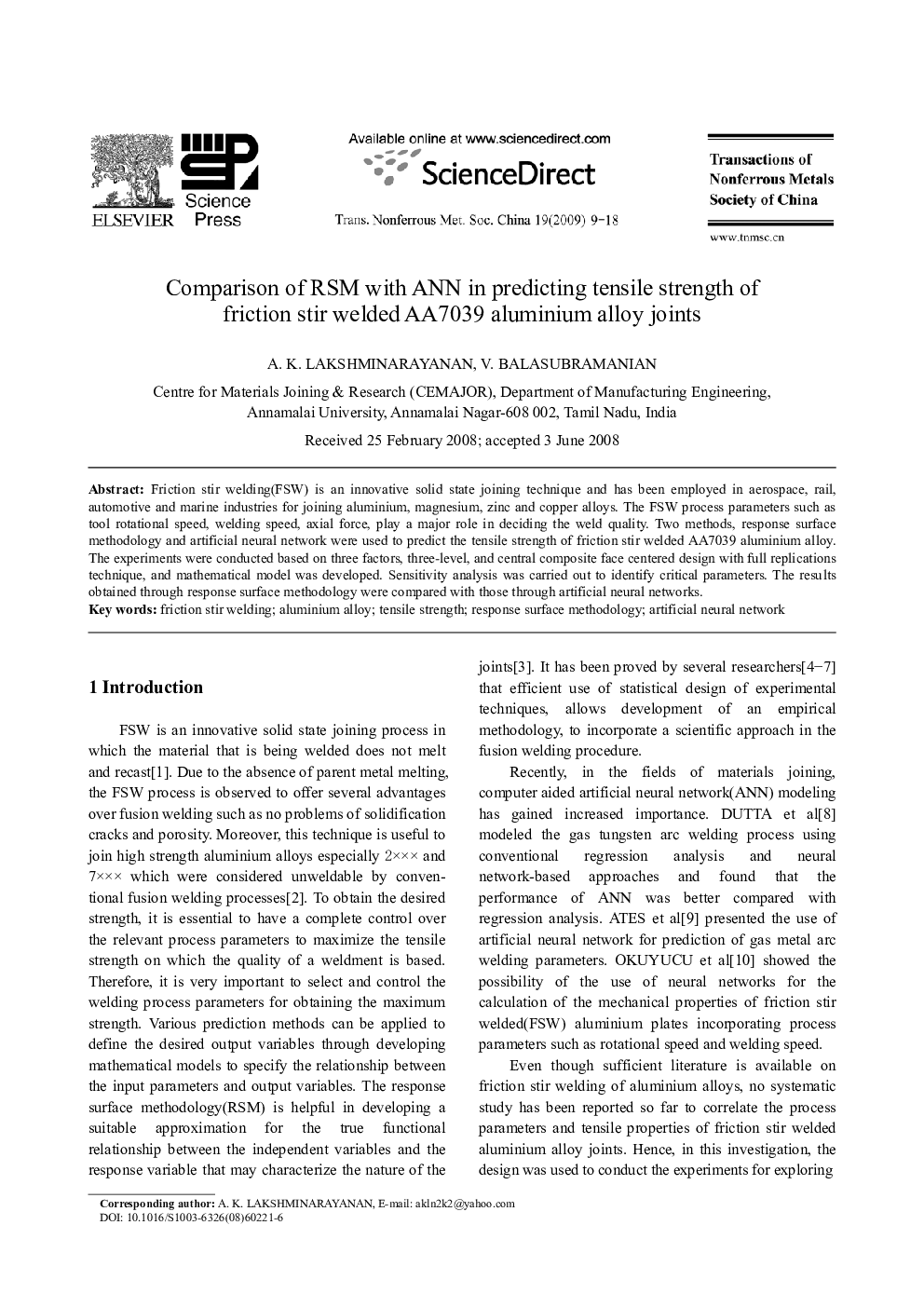| Article ID | Journal | Published Year | Pages | File Type |
|---|---|---|---|---|
| 1639490 | Transactions of Nonferrous Metals Society of China | 2009 | 10 Pages |
Friction stir welding(FSW) is an innovative solid state joining technique and has been employed in aerospace, rail, automotive and marine industries for joining aluminium, magnesium, zinc and copper alloys. The FSW process parameters such as tool rotational speed, welding speed, axial force, play a major role in deciding the weld quality. Two methods, response surface methodology and artificial neural network were used to predict the tensile strength of friction stir welded AA7039 aluminium alloy. The experiments were conducted based on three factors, three-level, and central composite face centered design with full replications technique, and mathematical model was developed. Sensitivity analysis was carried out to identify critical parameters. The results obtained through response surface methodology were compared with those through artificial neural networks.
